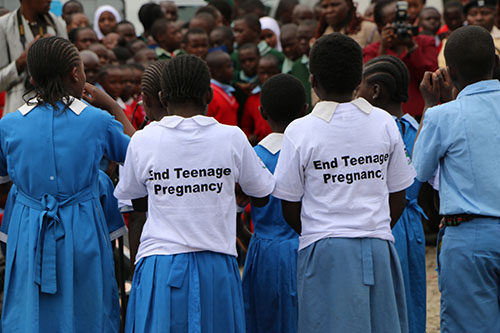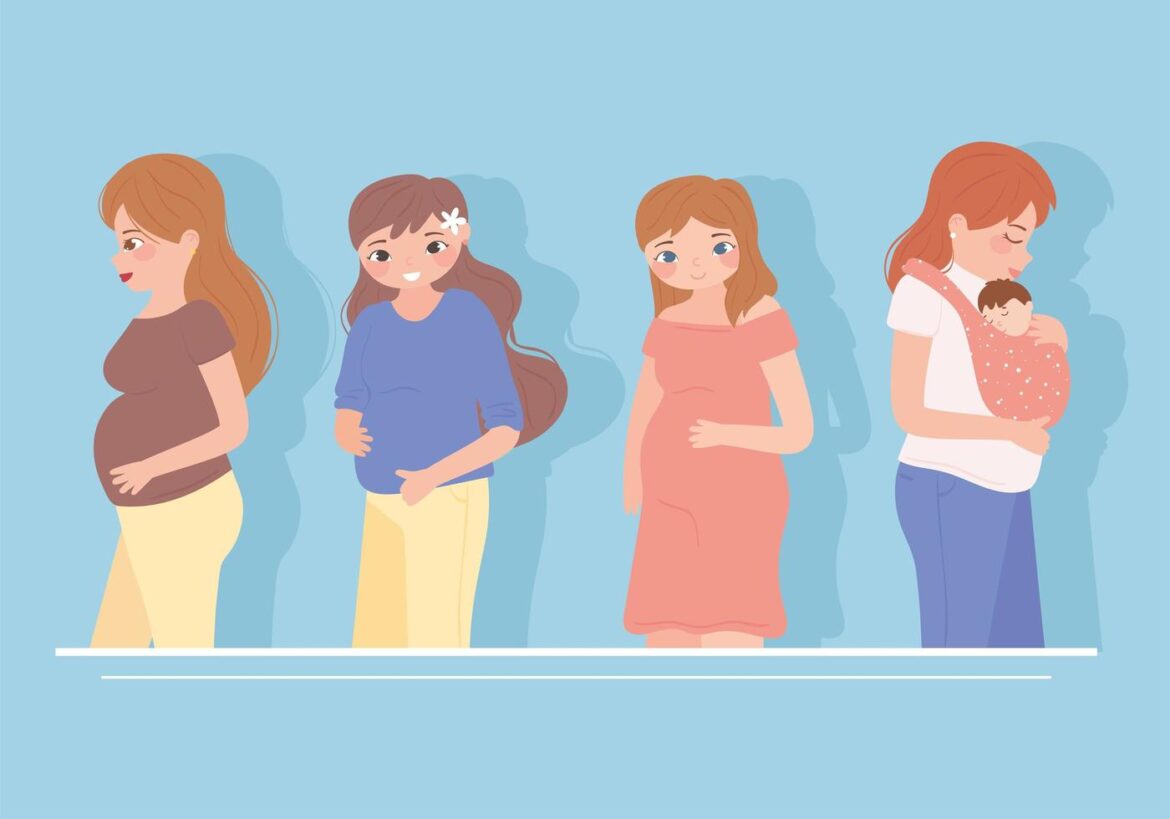Teenage pregnancies in South Africa have been increasing over the last three years, with an estimated 150 thousands young girls between the age group of 11 and 19 falling pregnant in only one year between 2022-23.
These pregnancies constitute a real danger for the future of many young South Africans, some of them have no choice, but to abandon their studies to take care of their newborns. The situation is particularly pernicious in rural areas, where young girls hoping to escape poverty make it easy prey for older men, known as “blessers” or “sugar daddies.”
The estimate for the previous year was about 90,000 unwanted pregnancies among the teenagers according to the South African Department of Social Development. At the George Hospital, in the region of Western Cape, there were 400 births to mothers aged between fifteen and nineteen in 2003, compared with 393 in 2022 in that age category, as confirmed by Eden District spokesperson for the Western Cape Health Department Nadia Ferreira.
As given name ‘Lucy’ decided to knock on the door of the Children Aid Association, after giving birth to her baby a few months ago. The 14-year old girl decided to file a complaint against her rapist and meet with social workers.
“At first I wanted to give my baby up for adoption,” said ‘Lucy,’ a minor mother. “Now holding my baby in my arms, I am not able to do it. I Have to work hard to feed my baby.”
Some of these teenage mothers were raped and others had unprotected sex with school friends or their teachers. A situation which is out of control to the authorities and nongovernmental organizations for the future of these teenage mothers who have no choice other than leaving their studies and going back home to take care of their newborns.

Reports show that on school dropout of adolescent girls during pregnancy each year and after giving birth, the chance of a teenager mother ever returning to school decreases. Only one third of these adolescent mothers ever return to school.
“These children need support, attention and love,” said Director at the Teddy Bear Foundation Clinic, Dr. Shaheda Omar. “Their lives transform radically. Suddenly, some of these teens mother fall into depression, and others attempt to commit suicide.”
The absence of the fathers of the newborns is one of the difficult circumstances that contribute to the stress level of girls who are at risk of teenage pregnancy, as well as poverty, alcohol, drug abuse, and the relationship breakdown with their parents. This situation leaves most of these teenage women stigmatized by society and forces most of them into early marriages.
Different administrations of the country have promised to strengthen certain prevention measures, as they were succeeding each other, without productive results. Nongovernment organizations and associations have committed to becoming mediators in precarious neighborhoods and schools.
“We started to provide contraceptive pills to be taken daily, or injections that last two to three months and implants recommended for high school girls.” Explained a teacher, who, in her class five students are currently pregnant.
Some political parties in the new coalition government called for strengthening of sex education in schools, encouraging families to talk more about sexuality with their children.
“We bridge the gap between girls and their parents, and their teachers. Unfortunately, most parents don’t talk about teenage pregnancy and sex to their children,” said Sphiwe Sibiya, an activist at Soul City. “We are here to talk about that topic, and show that they can have access to free services in clinics without discrimination.”

Abortion is legal in South Africa, yet most pregnant women do not know that they are legally entitled to a free abortion at a public health care facility, during the first three months of pregnancy.
Negative abortion attitudes are common in South Africa and can create barriers to safe abortion care. Those attitudes are closely tied to ideologies about sexuality, religiosity, and gender inequality; particularly social expectations of motherhood.

